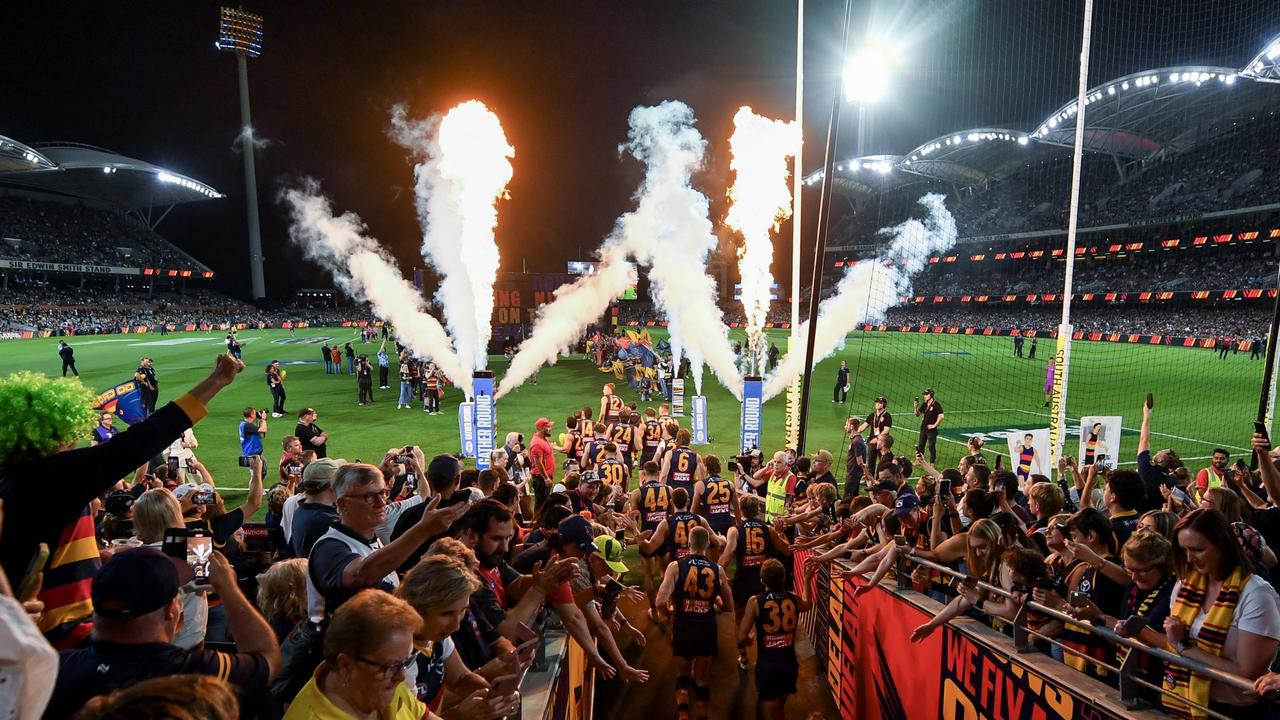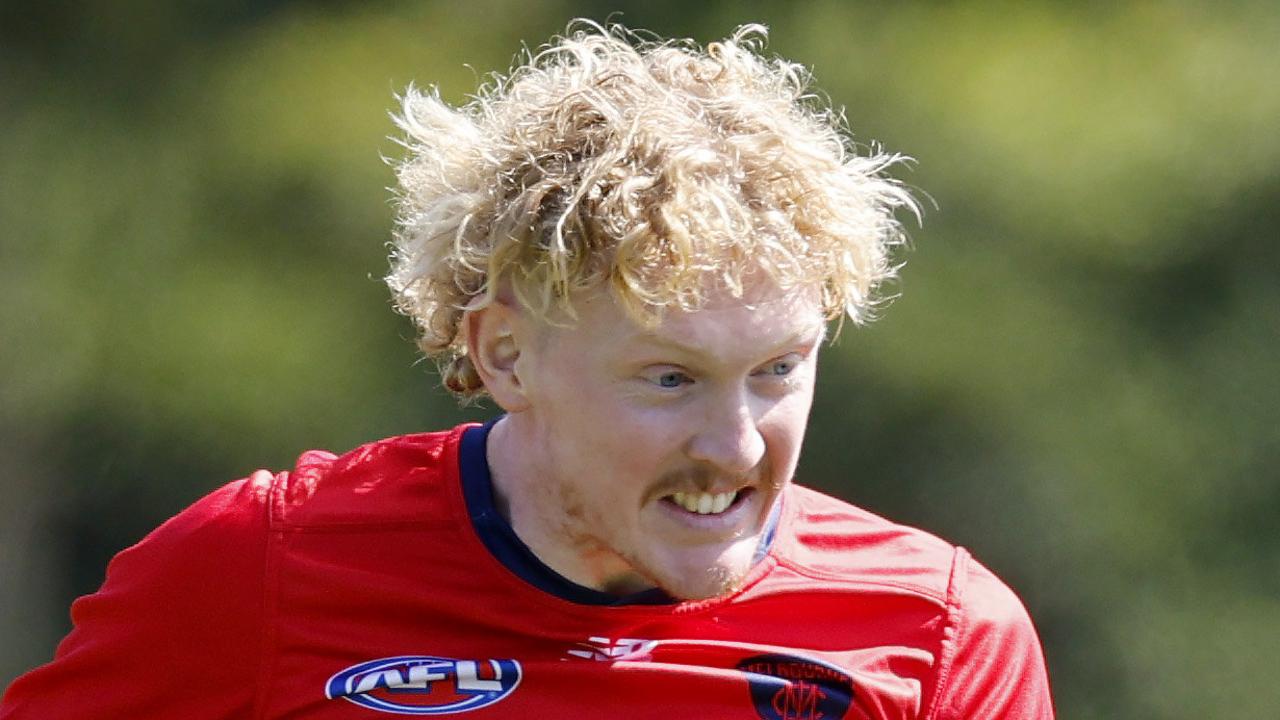Jon Ralph: Why the AFL should employ James Hird as a mental health ambassador
James Hird has been refreshingly frank about what caused his mental health issues. Instead of bashing him over his desire to return to Essendon, Jon Ralph says the AFL should use him for his mental health advocacy.
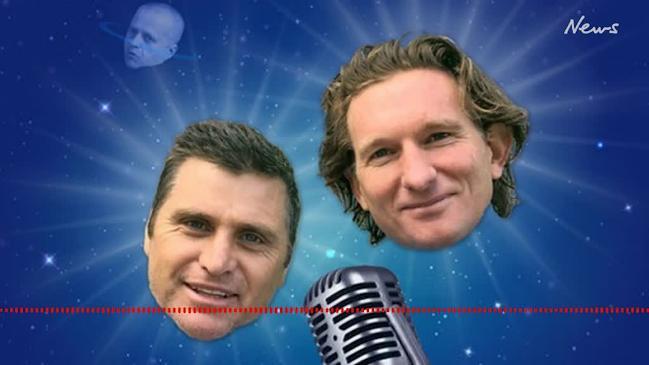
Jon Ralph
Don't miss out on the headlines from Jon Ralph. Followed categories will be added to My News.
James Hird’s reintroduction to the footy media world turned out to be another opportunity to kick him until it hurt.
The Essendon champion’s “never say never” comment allowed the usual suspects to trawl over past misdeeds with some added spice.
But a return to coaching aside, Hird might have another more important role in football.
FOOTY’S DARK CLOUD: THE AFL’S MAJOR MENTAL HEALTH BATTLE
JAMES HIRD HINTS AT COACHING RETURN IN COMMENTARY BOX
AFL SPARKS FURORE OVER ANZAC DAY MATCH CONCERT
In a year in which the AFL and its player union have both tagged mental health as the league’s most prominent issue, Hird could change the conversation like few before him.
For that reason there is no better person than Hird to be an AFL mental health ambassador or consultant, using his story to educate and help players.
Stripped of ego or embarrassment, he won’t hide from his issues.
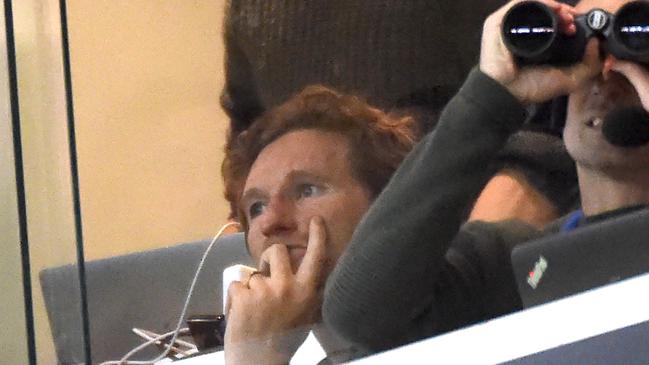
“Funnily enough, it is not something I am embarrassed about, or don’t mind talking about,” he said last year.
“There are a lot of things in my life that I want to keep very quiet. But that part of my life, for some reason, I don’t think it needs to be private and I need to talk about it, about the effects it had on me and other people.”
It was a point he repeated in the Triple M commentary box — openly confront your issues and talk about them instead of pretending they never happened.
Former Carlton player Jake Edwards runs the Outside the Locker Room program. In part Edwards uses his story after he attempted to take his own life while an AFL player.
He said yesterday there was no figure more powerful in the game than Hird when it came to destigmatising mental health.
“Like Hirdy said, he’s not embarrassed about what he has been through and nor should he,” Edwards said.
“The clinical side of treatment is really important but, in order for people to relate, sharing stories is really important, especially in our era which comes from a place of ego and pride,” he said.
“To have someone of Hirdy’s status talking about his experiences and his mental health and how he got out the other side, I can guarantee that would be a positive experience for all AFL players.”
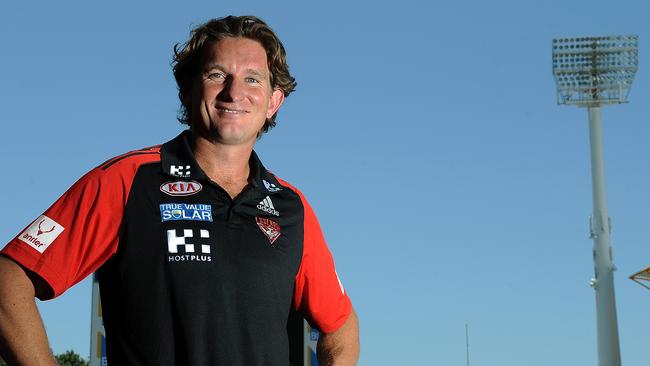
Hird’s cross to bear for the rest of his life is that he will be one of football’s most polarising figures.
But even if he never finds his way back to senior coaching he has already changed attitudes on mental health to such an extent that it should make his critics sit up and take notice.

